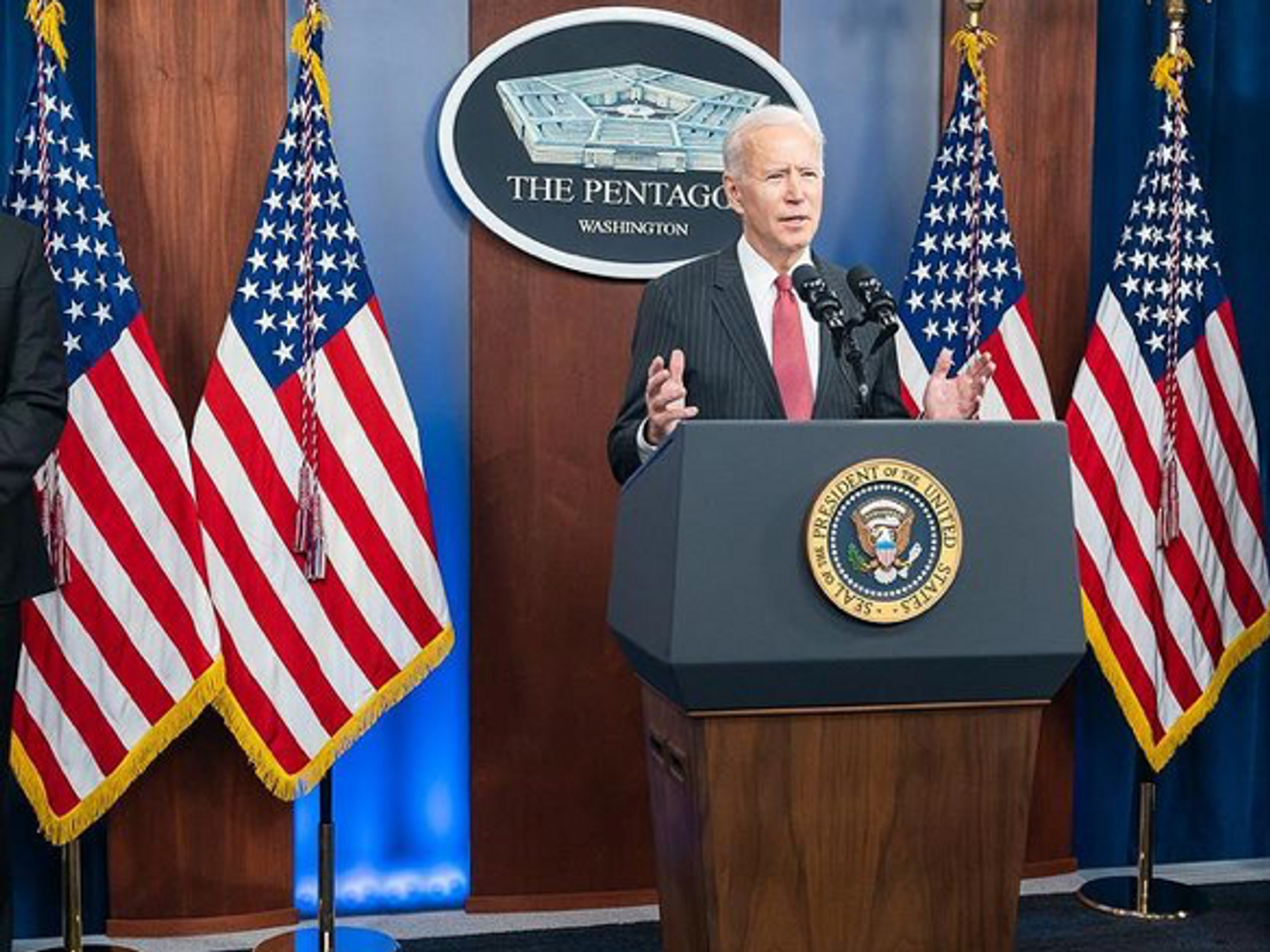
President Joe Biden
The U.S. mission in Afghanistan is nearly old enough to buy a beer, having gone on since 2001. Two presidents, Barack Obama and Donald Trump, promised it would come to an end, but the war outlasted them both.
Trump's administration negotiated a deal with the Taliban that committed us to leave by May. That obligation was conveniently scheduled for after the 2020 presidential election, making it Joe Biden's problem. Biden said at his news conference last week, "It's going to be hard to meet the May 1 deadline." But when asked if our troops would still be there next year, he said, "I can't picture that being the case."
Really? He served as vice president under Obama, who campaigned on a promise to get out within 16 months. Running for reelection in 2012, Obama promised to end our involvement by 2014. Trump made similar promises, which were equally empty.
If Biden can't picture our forces staying into next year and beyond, his imagination is failing him. There are powerful reasons to think they'll be in Afghanistan in 2022. Also in 2023. And 2024. And ...
The first reason is that there are far bigger political risks in leaving than staying. Our departure could lead to an expanded war between the Kabul regime and the Taliban, the defeat of the Afghan army and the return of the Taliban to power.
No president wants to have to answer for what could be the grim aftermath of our departure. Biden can remember the 1975 debacle following our withdrawal from Vietnam, when U.S. embassy staff in Saigon evacuated in helicopters as desperate Vietnamese took to the sea in rickety boats to escape. For the time being, the easiest way to avoid an embarrassing outcome is to stay.
This will be particularly true next year, with Democrats facing midterm elections that could give Republicans control of Congress. Critics of our endless presence in Afghanistan — a group that includes me — may take hope from polls indicating that most Americans would like to get out sooner or later. But that sentiment carries little weight.
The great majority of people rarely give any thought to Afghanistan. There are no protests against it or citizen lobbying campaigns to end the war. It gets minimal attention from the news media. Our troop levels are low — 3,500 — and no American has been killed in combat in more than a year.
None of these facts justifies a mission that has no prospect of success regardless of how long we stay or what we do. But Biden is shrewd enough to see that maintaining the status quo won't cost him votes, while pulling out could.
Another reason he is likely to go along with an extension is that his administration is staffed by creatures of the "Blob" — the network of establishment foreign policy experts who favor an expansive U.S. role in the world and resist every effort to pull back even from failed interventions.
His Secretary of State, Antony Blinken, supported the Iraq War as well as Obama's intervention in Libya. National Security Adviser Jake Sullivan was an aide to then-Secretary of State Hillary Clinton and chief foreign policy adviser for her presidential campaign. She favored both wars.
Biden's Defense Secretary Lloyd Austin is a retired four-star Army general. In his presidential memoir, Obama recalled the resistance of the Pentagon brass to pulling out of Iraq and Afghanistan. These officers were, he wrote, products of "a U.S. military that prided itself on accomplishing a mission once started, without regard to cost, duration, or whether the mission was the right one to begin with." Austin didn't get where he is by being a bold nonconformist.
Biden will probably keep slogging away in Afghanistan as long as the basic status quo holds. Assuming the Kabul government and its military can stave off defeat, delaying our departure makes political sense.
But it won't enhance our chances of success. If you don't know the answers on an exam, getting an extra hour or day to finish it won't help. It only postpones the moment when you have to confront the truth.
Bush left that moment to Obama, who bequeathed it to Trump, who passed it on to his successor. Biden is likely to conclude that 1) whoever leaves Afghanistan will bear the blame for the outcome, and 2) it won't be him.
Steve Chapman blogs at http://www.chicagotribune.com/news/opinion/chapman. Follow him on Twitter @SteveChapman13 or at https://www.facebook.com/stevechapman13. To find out more about Steve Chapman and read features by other Creators Syndicate writers and cartoonists, visit the Creators Syndicate website at www.creators.com
- Biden Will Withdraw From Afghanistan By 9/11 Anniversary - National Memo ›
- How To Exit The Forever War - National Memo ›
- Bipartisan Legislators Urge Biden To Evacuate Imperiled Afghan Allies - National Memo ›
- Biden wants to explore keeping U.S. counter-terrorism troops in ... ›
- Biden weighs keeping U.S. troops in Afghanistan until November ›
- Officials Try to Sway Biden Using Intelligence on Potential for ... ›
- What Joe Biden's Presidency May Mean For Afghanistan : NPR ›
- Why staying in Afghanistan is the least bad choice for Biden ›








